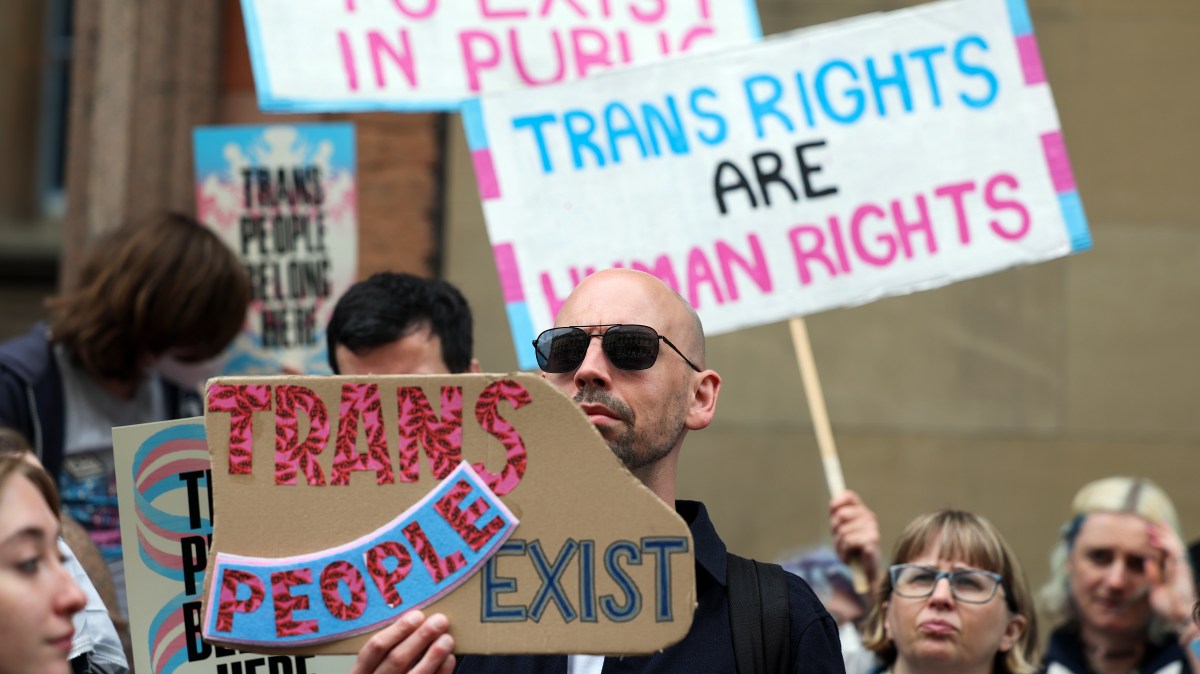More than half of all the people in Scotland who identify as non-binary suffer from a mental health condition, detailed analysis of census records show.
Trans rights groups have long warned that people experiencing gender dysphoria disproportionately suffer from anxiety, depression and even suicidal thoughts.
The 2022 census was the first to ask questions about trans history and status.

The results of the analysis are in line with surveys of trans and non-binary people published in the last decade
GEORGE CLERK/GETTY IMAGES
It found there were just under 20,000 people who had one trans identity or another. Of these, just over 9,000 were non-binary, meaning they do not routinely identify as either male or female. There were 3,088 trans women and 3,307 trans men.
Government statisticians, in a special report published this week, revealed that non-binary people were far more likely to report long-term mental illness than the general population.
They wrote: “More than half (55.9 per cent) of the non-binary population reported a mental health condition. This is considerably higher than the rest of Scotland aged 16 and above, where 13 per cent reported having a mental health condition.”
The civil servants were careful not to say why non-binary people should experience worse mental health than the average citizen. “Due to the nature of descriptive statistics, the analysis in this report can only describe the characteristics and outcomes for non-binary people, and is not able to provide causal explanations,” they said.
Scottish Trans, an advocacy group, a decade ago published a survey of non-binary Scots that revealed 65 per cent of people felt their mental health was “poorer” due to what the group called “a lack of visibility and inclusion of non-binary people in services”.
It reported significant anxiety among non-binary people, especially about issues such as going to a public lavatory.
In another survey, published last year, Scottish Trans found that half of all trans and non-binary respondents had experienced verbal abuse and harassment. In 2018 Stonewall, the LGBT group, said 70 per cent of non-binary Britons experienced depression.
In 2019 the World Health Organisation stopped listing gender incongruence as a mental illness.
Some politicians and commentators still reject the term non-binary, which has become widely used only in the last three decades.
The Scottish Conservative MSP Murdo Fraser, in remarks that caused controversy, said identifying as non-binary was the same as “identifying as a cat”.

